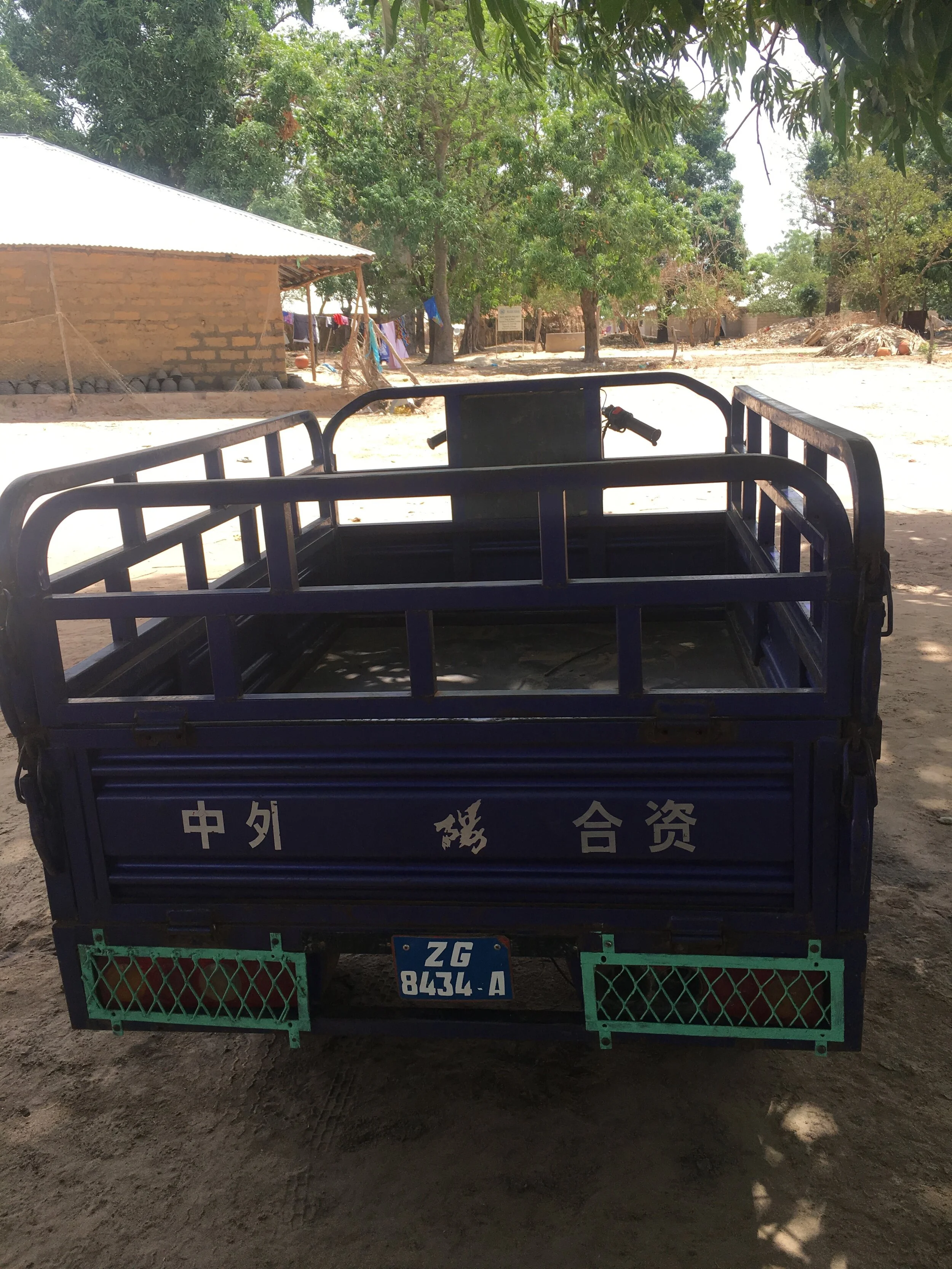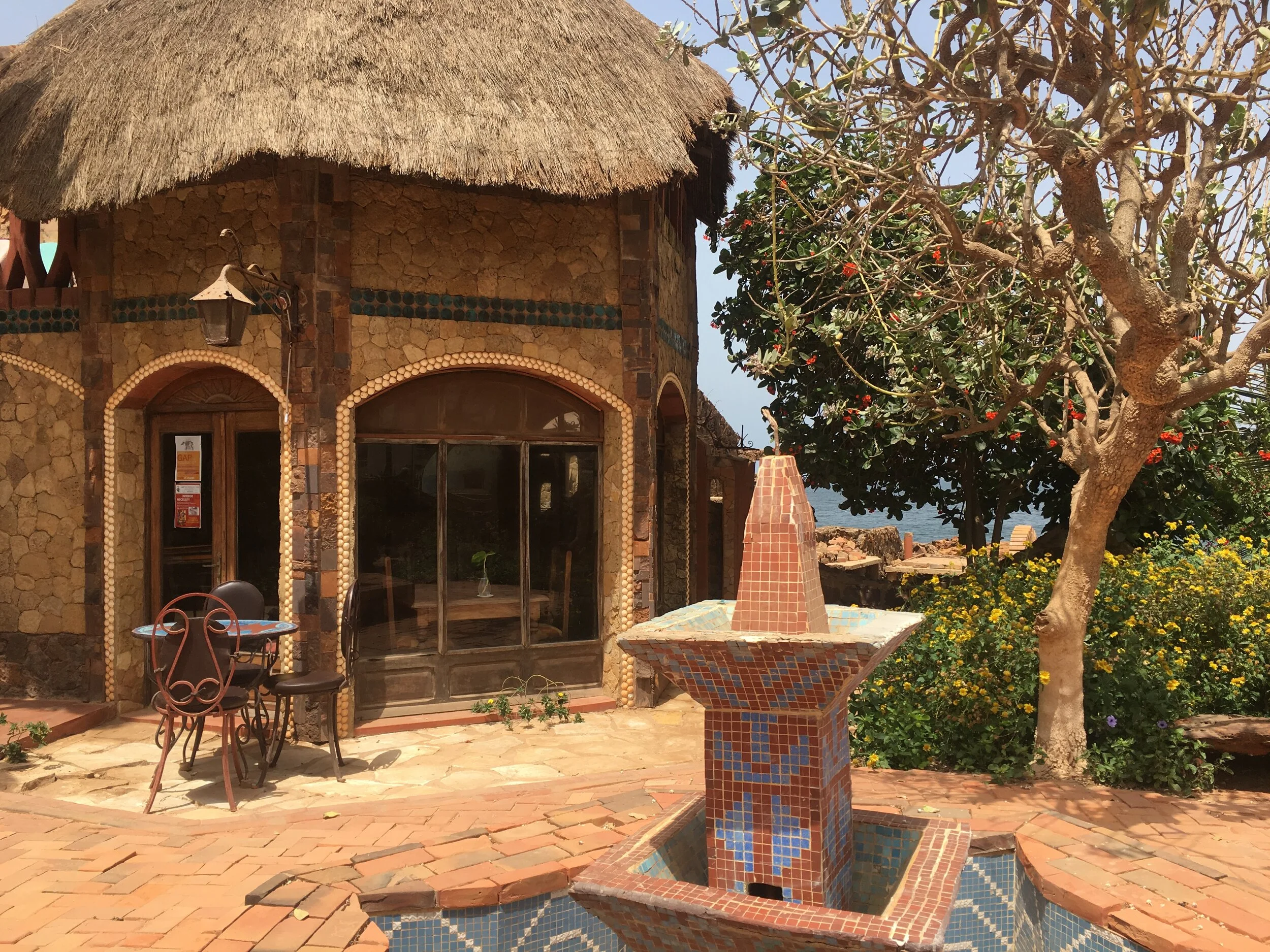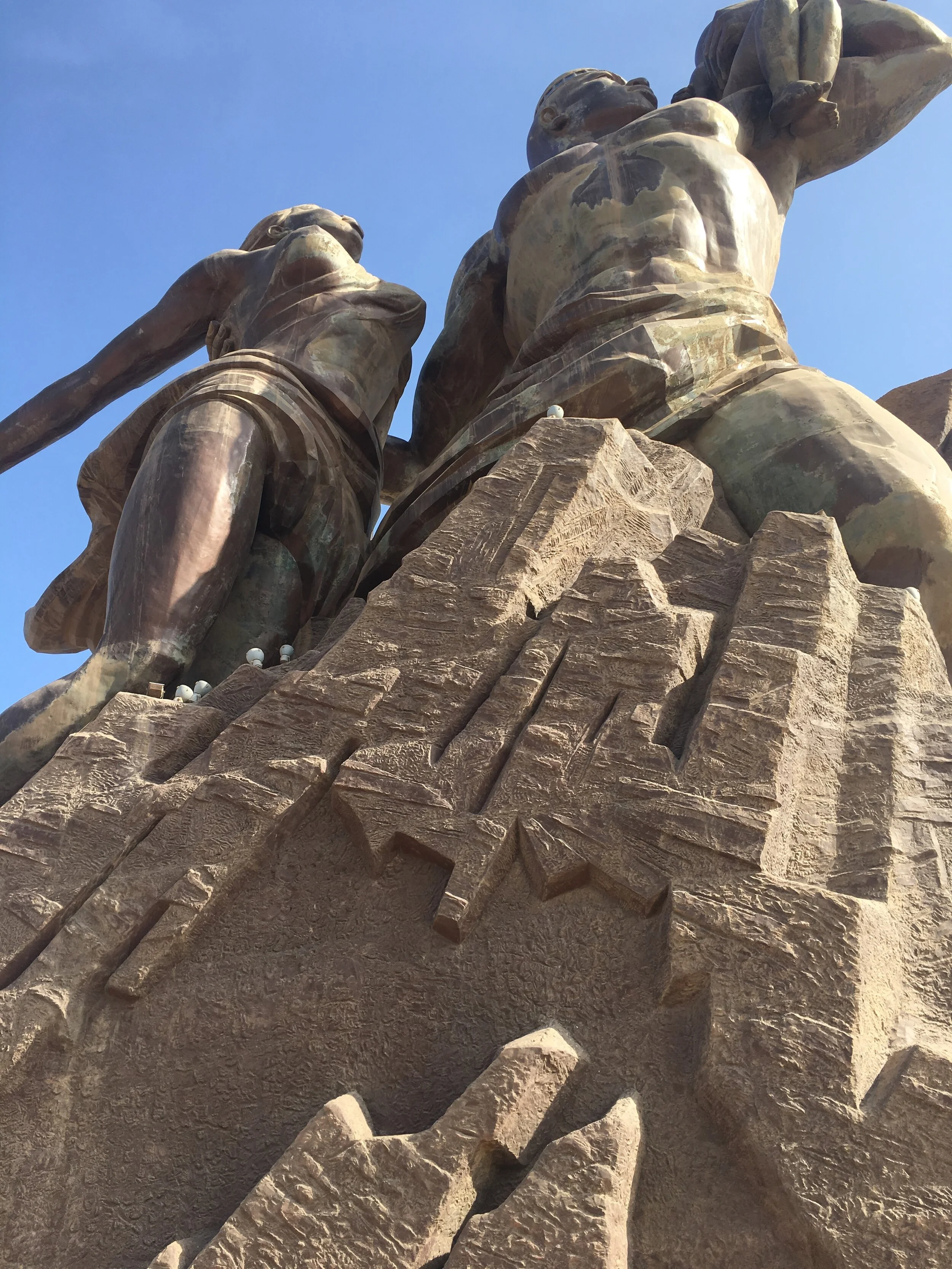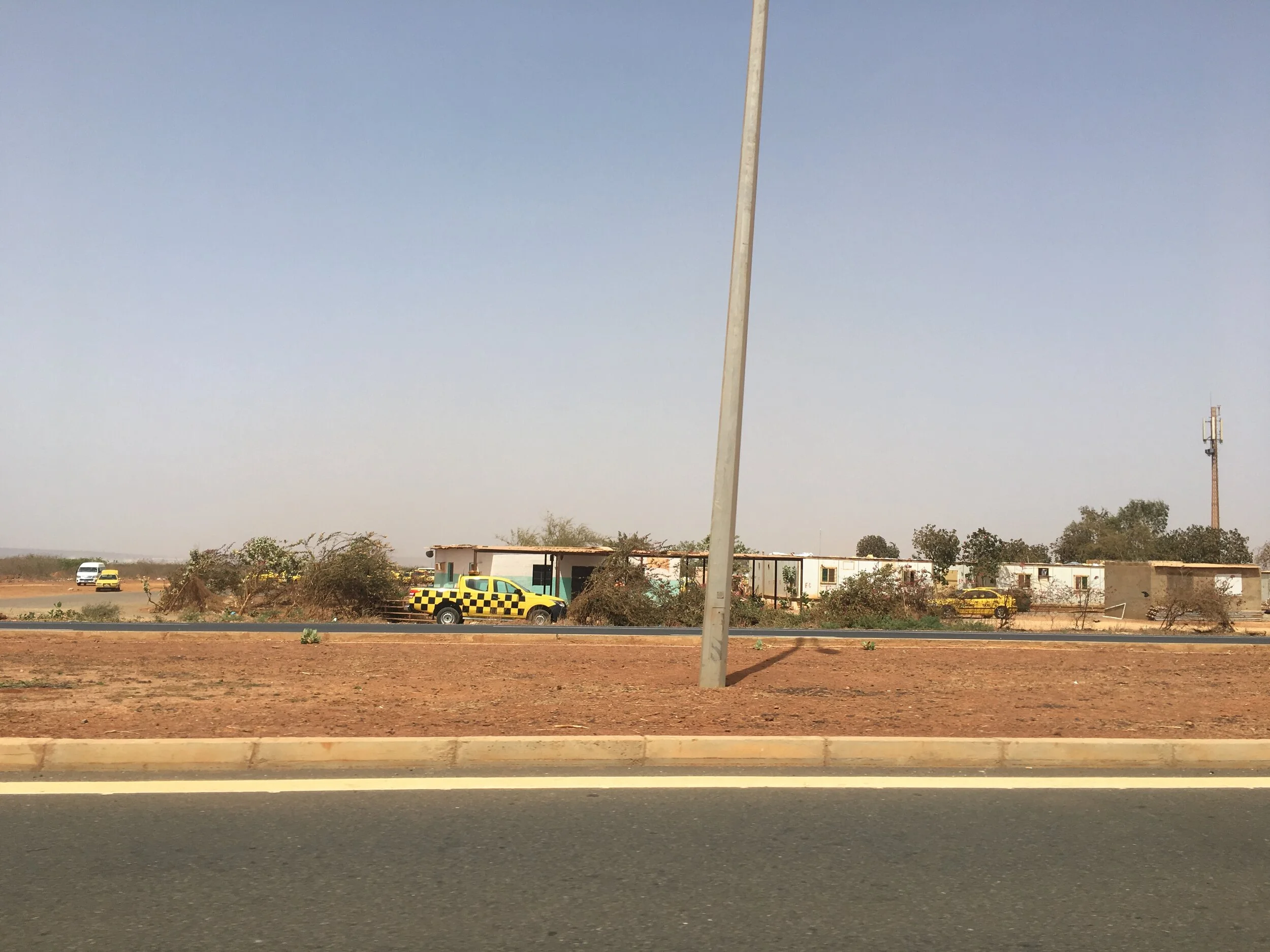Lake Retba, Senegal
Our guide, Lamine, says it’ll rain any day now. It’s raining time, and the sky is overcast but the drops don’t fall. Last year there were only three big rains, so Lake Reba “it not satisfied,” he says from the passenger side of our topless jeep. I’m bouncing around in the back on long black benches trying to hold on just enough to keep from flying out but not so tightly that the potholes cause pain. He tells us after the first big rain farmers ready their fields. After the 2nd rain he plans tomatoes and after the third rain he plants peanuts. But for now, he’s serving as our tour guide on a dusty, rickety drive around the lake.
Women and men work to scoop the salt from the bottom of Lake Retba and pile it onshore for bagging and distribution.
There’s a small crafts village on the west side of the lake with merchants selling ebony, lacquered cow horn trinkets and jewelry. A few restaurants and guest houses cater to tourists and several canoe, ATV and jeep operators take visitors on tours. The villagers grow cabbages and parsley in plots of land watered by hand with watering cans filled at the well.
Our jeep and driver who spoke French but not English.
Lake Retba, an UNESCO World Heritage Site, is about 40km east of Dakar close to the coast. It’s incredibly salty. Saltier than the Great Salt Lake. Saltier than the Dead Sea. At 40% salinity, it’s the second saltiest body of water in the world. After the rainy season, when the algae blooms are at their peak around January-February the lake is a vibrant pink color for which it is named. The bottom of the 1meter deep lake is a bed of salt crystals in three sizes. Men in canoes use big buckets to scoop it off the floor of the lake into their boats.
The men (or boys as Lamine calls them) mostly come from Mali, though there are Senegalese salt collectors too. Rich business men who own the wooded canoes hire them. It’s hard work but a big bag of salt fetches 1000 CFA or roughly $1.75. A miner can earn more here than in most other professions in Senegal if they’re willing to do the work. The largest crystals are exported for rock salt to Europe and the medium-sized crystals are sold domestically. The smallest and most valuable grains are made into table salt. All of the miners sell collectively to distributors with big trucks who haul the white bags away.
It’s the women who do the bagging. They carry buckets on their heads which rest on discs of wound cloth called tengs, to protect their skulls and help them balance. Girls as young as seven practice balancing heavy loads on their heads when they fetch well water for their families. The technique isn’t solely for females either, I saw a man carrying 300 eggs stacked 10 trays high on his head with no hands and no teng.
The women wade out waste deep in leggings and long tunics to fill their buckets. The water is warm but the salt and algae combine to make a thick, viscous texture that’s more akin to baby oil than salt water. It’s sticks to the skin and leaves a film. The algae smells like decomposing earth and the water itself is murky and dark, though totally safe to swim in.
Megan and Lamine hold the salt Lamine scooped off the bottom of the late. The water feels oily and slick.
Salt crystals from the bottom of Lake Retba.
Lamine tells us about the legend of the origin of the lake, which I could not find evidence of, but I found it interesting. In past generations the lake was fresh and had lots of fish in it (today there are few dwarf fish who can survive in the salty water). The estuary that connects the sea to the lake was open and people made their livelihood catching the fish. The heavy winds were blowing the desert of Mauritania farther and farther south and eventually created big dunes on the beaches just north of the lake. People planted trees on the dunes to stop the creation of more dunes, but the sane filled in the estuary allowing only a small amount of water to enter the lake. The lake became saltier and saltier and the fish died. But the people were happy because they became salt miners and earned a lot more money than they did fishing.








